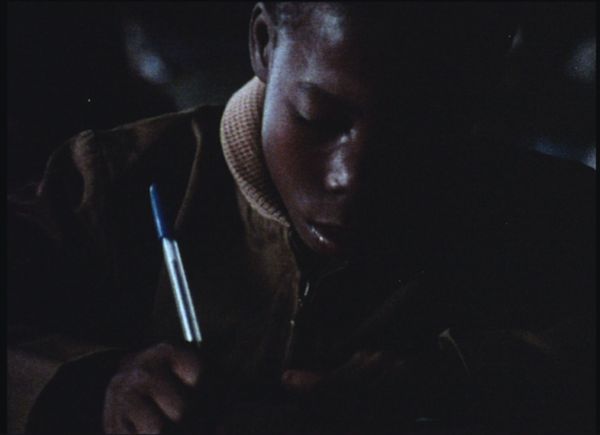Eye For Film >> Movies >> Concerning Violence (2013) Film Review
Concerning Violence
Reviewed by: Amber Wilkinson

That colonialism "is violence in its natural state, and it will only yield when confronted with greater violence" is one of the central tenets of Frantz Fanon's book The Wretched Earth - a damning assessment of colonisation that is used as the basis for Göran Hugo Olsson's latest film.
As with his last documentary The Black Power Mixtape, this is less a "directed" film than a collage of archival footage, carefully curated to create a provocative think piece. The subtitle - 9 Scenes From The Anti-Imperialist Self-Defence - sets the tone and structure as Olsson wrangles 16mm stories from the Swedish archives, capturing some of the world's former colonial hotspots, including Rhodesia (Zimbabwe), Liberia and Mozambique.

Those who have some existing knowledge of the former colonies in Africa will get most from the film as Olsson does not dally with set-up, plunging us straight into the cultural conflict that exists in each of these settings. Much of the footage is not for the faint-heared, with images of an amputee mother feeding a baby who also has a limb missing particularly shocking - but it is the sense of creeping disgust generated by the settlers' attitudes that lingers longest. This is the closet violence of the colonies, revealed in the words of those who would rather build a church than a hospital or school, or in the offhand way that an army evicts a striking miner. When a young Robert Mugabe begins to sound like the voice of reason, the madness of the colonial idea is hammered strikingly home.
The film's biggest problem is its unapologetically academic approach, emphasised by the use of huge screeds of Fanon's original text which play out over the screen, while being simultaneously read by singer and activist Lauryn Hill. Considering the more subtle comparisons being drawn elsewhere, this feels heavy-handed - it is enough to either see or hear the words and opting for both smacks of talking down to us, as though we cannot be expected to take it in, unless it is served up double.
This does not diminish the impact of the footage, however, which feels both relevant and important when you consider the state of the world we live in. Although no direct parallels are drawn to modern-day hot-spots, the idea of food aid being used to "fatten us like geese" should give those of us in the world's more affluent nations something to chew on. In hindsight, the justified anger of the colonised is also clearly evident and should act as a cautionary tale for the way nations conduct their business in other people's countries today.
Reviewed on: 05 Feb 2014


















